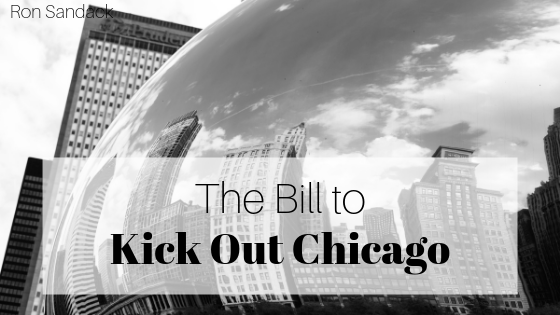Illinois wants a voice. And by Illinois, I don’t mean Chicago, although that would be easy to assume; Illinois is more than its urban epicenter and surrounding collar counties, or at least that is what the rural communities in the state want you to know. As often is this case with states that have a large city center (think New York, Massachusetts, California, and Georgia), the rest of the counties can often feel overlooked in matters of policy, finances, and the like. If the city center goes down, they drag the rest of the state with them.
This is why there has been a push to create a 51st state consisting of Chicago and potentially a few surrounding counties. Republican Representative Brad Halbrook is heading this idea of separation and there has been a tremendous amount of attention to his idea and support for the concept throughout rural communities south of I-80.
Talks like this have come up in the past and the idea of separating from Chicago is not a new one. Yes, the idea is typically laughed at by those in and around Chicago, but this time there is a bit more of a rally behind it even if it is a doomed proposition The message being sent by our friends from the south is what is important.
Even the bill’s sponsor, Representative C.D. Davidsmeyer, doesn’t intend the bill to be successful but instead open up a conversation about the effect that Chicago has on the rest of the state. Davidsmeyer describes the resolution as a “frustration of the policies than the true belief that Chicago and Illinois would be better off as separate states.” He also points out that there is a mutually beneficial aspect to the relationship between Chicago and the rural communities.
This type of legislation is an expression of frustration and has virtually no chance in our currently Democratically controlled Legislature, especially when most of the lawmakers hail from Chicago themselves, but one can hope that it will lead to change. A change in perceptions about one another and our deeply diverse state and in the form of a chance. A chance for the rest of the state to have a say in important legislation within the General Assembly. One chance that for once, the urban metropolis and its concerns will not be the only considered party when introducing, changing, or passing new laws and regulations.
The tug of war between cities, local suburbs and rural communities is hardly new and is prevalent across the country. This tension can cause discontent and resentment to citizens whose opinions differ from those in the big and seemingly dominate city. We see this clash exist in New York, with Manhattan and surrounding boroughs completely controlling the state’s politics; as well as in California with Los Angeles. If it is not the reality that Chicago and its interests dominate the processes in Springfield, we know that is the perception by some in downstate Illinois. So, while we may not see Chicago become its own state, Chicagoans and those in the collar counties should acknowledge the perception and recognize that Illinois is not a “one-size fits all” state and be cognizant of our friends from downstate who may have other perspectives and priorities.

